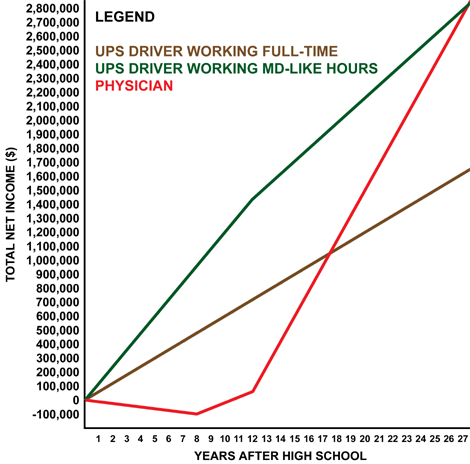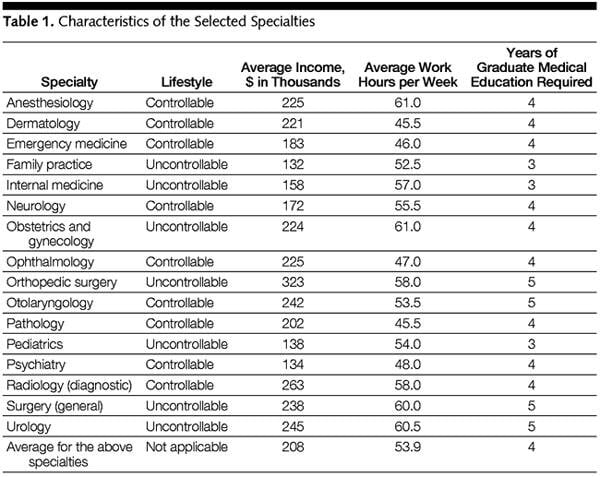Ever heard of the question "does the doctor ever catch up to the janitor?". It's been asked because a janitor, given he/she starts work right after HS (or even before if a dropout), can 8 or more years of income and never had to pay any money for tuition. Don't get me wrong... I am not going into medicine just for the money - I enjoy physiology, would like a challenge in life, and would feel honoured in healing people.
We all know the answer to this question. In the end, doctors are more well-off - they have better houses , cars, hotter wives , etc.. But a better question to ask is, how long would it generally take for a doctor, given their massive debt in tuition, to level with a janitor in income? 5 years? So would I need to wait until my 30s to start seeing real benefits from my income? Is life this unfair?
, etc.. But a better question to ask is, how long would it generally take for a doctor, given their massive debt in tuition, to level with a janitor in income? 5 years? So would I need to wait until my 30s to start seeing real benefits from my income? Is life this unfair?
Would appreciate your input, even if you think I am a money-hungry slimeball and only want to use my resources to pimp.
We all know the answer to this question. In the end, doctors are more well-off - they have better houses , cars, hotter wives
 , etc.. But a better question to ask is, how long would it generally take for a doctor, given their massive debt in tuition, to level with a janitor in income? 5 years? So would I need to wait until my 30s to start seeing real benefits from my income? Is life this unfair?
, etc.. But a better question to ask is, how long would it generally take for a doctor, given their massive debt in tuition, to level with a janitor in income? 5 years? So would I need to wait until my 30s to start seeing real benefits from my income? Is life this unfair?Would appreciate your input, even if you think I am a money-hungry slimeball and only want to use my resources to pimp.


